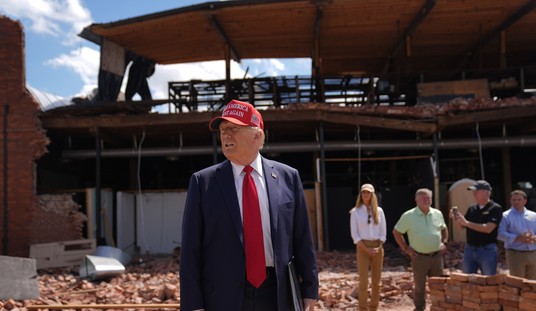On Saturday, Florida Gov. Ron DeSantis abruptly canceled a string of Sunday morning show appearances, with very little notice. His campaign cited unspecified 'scheduling' issues for the changes, then half-heartedly denied that he was on the brink of dropping out of the race. Rumors to the contrary swirled, only growing louder the next day. Sure enough, on Sunday afternoon, DeSantis released a video message in which he suspended his 2024 presidential effort, dinged rival Nikki Haley, and endorsed former President Donald Trump. This represented a dramatic, strikingly early conclusion to a heavily-funded campaign that was anticipated, then launched, with great promise and fanfare. What happened?
(1) It's not an exaggeration to note that DeSantis was considered a frontrunner, if not the frontrunner, for the GOP nomination at one time. Trump started attacking him, generally unsuccessfully, in late 2022 -- and the buzz around him only grew after Florida broke through as a shining bright spot in an otherwise disappointing midterm election for the opposition party, with Trump seen a drag on the party in some key races. Trump launched his campaign shortly thereafter at a listless, perfunctory event at Mar-A-Lago, but a lot of the mojo seemed to be brewing north of Palm Beach, in Tallahassee.
(2) After DeSantis jumped in (more on that below), he gradually lost some altitude, but it's undeniable that the polling trajectory changed significantly and permanently after New York City's leftist District Attorney dropped a bogus, politicized indictment on Trump's head. The party rallied to Trump. The race would never be the same:
DeSantis was competitive until the end of March 2023, which is also when news broke of the indictment from the Manhattan DA: pic.twitter.com/xhSHauFRcc
— Steve Kornacki (@SteveKornacki) January 21, 2024
As I said on Fox shortly after DeSantis' exit, I believe even a flawless opposing campaign probably couldn't have overcome this dynamic. But the DeSantis campaign was far from flawless:
Recommended
On DeSantis’ exit: pic.twitter.com/NInUkk9sRH
— Guy Benson (@guypbenson) January 22, 2024
(3) The infamous DeSantis launch on Twitter was delayed and marred by technical difficulties, and the campaign never really recovered, lacking a real stride or voice. The glitchy, embarrassing rollout was something of a microcosm of how things went: Too cute by half, too online, and too niche in focus, too often, for too long, Critics have described the candidate as cold and aloof, which I think is a bit unkind. A "bad" candidate doesn't win by 20 points in a closely-divided state the way DeSantis did, turning his state deep red in the process. Granted, I'm a bit of a nerd who loves substance and appreciates successful outcomes, and that's Ron DeSantis. His team's media strategy for months was baffling, limiting his appearances to very few, almost exclusively friendly settings. This may have been dreamed up as a middle finger to the legacy press, as in, we don't like or need you. But the upshot was DeSantis seeming to vanish for long stretches outside of certain precincts, turning down big opportunities to sell his message to different groups of voters, and to define himself to a wider audience before someone else did. This also robbed DeSantis of the opportunity to showcase one of his greatest assets in GOP voters' minds: Confronting journalists with facts and aggressively challenging their narratives to their faces. For months, he surrendered this advantage voluntarily. I don't get it, and DeSantis himself acknowledged on Hugh Hewitt's show that this was a mistake.
Another core problem with the DeSantis campaign was how it seemed to replay the Ted Cruz failure of 2016. Cruz sought to get to everyone's right flank on virtually every issue, positing himself as the most conservative candidate in the race. It didn't work, and after four years of a Trump presidency, it was even less likely to work in 2024. DeSantis ended up marketing himself as the most conservative candidate in the race and also made a rolling, big play for MAGA voters. In the process, he turned off too many winnable 'soft Trump' or 'over Trump' voters. He thought that targeted critiques of Trump (COVID) and hammering away about his overwhelmingly successful record in Florida would be sufficient to thread the needle. It wasn't. In short, the DeSantis team misread the mood and priorities of the national GOP electorate. Incidentally, the notion that the DeSantis camp did "everything wrong," as some are arguing, is also unfair. They did plenty of things well, including locking in many early state endorsements. I also thought the Newsom debate was a brilliant move that went very well for their candidate.
The failure of this hyped and financially-loaded campaign will be picked apart and analyzed for years. This is my 'first draft' attempt at offering a fair-minded critique of their performance without delving into too much Monday morning quarterbacking. They made major strategic and tactical errors -- but, to reiterate, it also seems clear that the aforementioned mood and priorities of base voters meant that Donald Trump was always going to be the very heavy, if not prohibitive, favorite -- particularly after those first, highly dubious charges were announced by Alvin Bragg.
(4) Why did DeSantis drop when and how he did? My analysis, published in the minutes following the formal withdrawal announcement:
Why it happened & happened now (my analysis, not insider knowledge):
— Guy Benson (@guypbenson) January 21, 2024
(1) DeSantis recognized he had no viable path forward, as he stated, (2) he didn’t want to endure finishing a distant, single-digit third place in NH (then twist in the wind for a month pre-SC) — and (3) part…
Why it happened & happened now (my analysis, not insider knowledge): (1) DeSantis recognized he had no viable path forward, as he stated, (2) he didn’t want to endure finishing a distant, single-digit third place in NH (then twist in the wind for a month pre-SC) — and (3) part of the calculation may be that he wants to make peace with MAGA asap, with an eye to the future (see his 2028 comment to a reporter from NBC). If he can help bury Haley in NH (he plunged that dagger intentionally) and get back on the Trump train without dragging it out further, he may believe that would restore some good will among R voters who didn’t want him to challenge Trump this cycle. Whether any of that matters three-to-four years from now — if he’s still a major force in GOP politics at that stage, which he very well may be — is a discussion for another day.
(5) Finally, tangentially relatedly, a reflection on what 'the establishment' means at this moment within Republican Party politics. Trump currently owns the party and its establishment, for better (in the eyes of his supporters) or for worse:
The Republican “establishment” no longer means what it used to. pic.twitter.com/XNrCtG3Crm
— Guy Benson (@guypbenson) January 22, 2024


